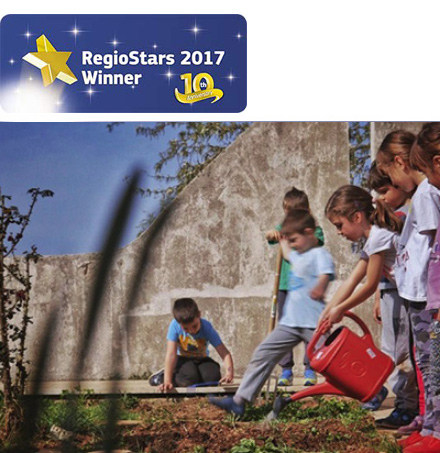Although the Split-Dalmatia region offers a number of growth opportunities for Croatia’s organic farming sector, it has one of the highest rural youth unemployment rates in the country. Thus, the EU-funded EkoBiz project is aiming to attract more young people to organic entrepreneurship by raising awareness of the local opportunities in the industry. It is providing concrete training and business support to young organic entrepreneurs, and promoting the consumption of organic produce in the local community.
- 01 August 2017
A strong organic sector is a priority for us. The project promotes young Croatian organic producers and the county’s development of organic agriculture.
The Split-Dalmatia region encompasses several islands and the Dalmatian hinterland, home to an exceptional range of plant and animal breeds and varieties providing the region with great natural potential to develop organic agriculture. Despite this, it is estimated that only 50 % of the county’s agricultural land is currently being farmed. Moreover, Dalmatia’s rural unemployment rate is as high as 35 % while regional youth unemployment has topped 40 %. These figures are indicative of the depopulation trend in the region’s rural areas.
To try to reverse this, the EU-funded EkoBiz project aims to foster interest in organic farming by providing targeted training, business support and promotional campaigns in local communities.
Reversing the rural exodus
Depopulation has left the proportion of farmers under the age of 40 operating in this particularly diverse and fertile region at just 6 % of the farming population. This is compounded by the lack of awareness about sustainable food consumption and the benefits of organic production in the area, where the average annual per capita spend on organic food is just EUR 26. EkoBiz aims to overcome this missed opportunity by attracting young people back to rural areas with the promise of entrepreneurial opportunities in organic farming.
The project will use education, business support and the development of entrepreneurial skills at an early age to improve knowledge transfer and capacity-building in the organic sector. So far, over 70 young people have been trained and given business support consisting of help with their business plan as well as advice concerning their European Agricultural Fund for Rural Development applications for those meeting the requirements.
Setting the example, sustainably
The project training was implemented in the context of ‘The Academy of Organic Agriculture’, which provides young farmers with an international context and opportunities for collaboration. Twenty local schools and nurseries are also engaging in the project by taking part in small-scale projects related to organic farming. Bigger projects have been developed to promote organic food in school and nurseries, with a pilot project distributing 200 organic meals to three partner schools.
EkoBiz has already directly contributed to the establishment of 15 new businesses with the help of EAFRD funding, and the Split-Dalmatia region is now perceived as a model to follow to boost both the supply of, and demand for, local organic produce. Ultimately, this project aims to nurture a number of young, competitive and profitable organic farmers who will contribute to sustainable development and more jobs in Dalmatian rural areas, as well as climate change mitigation and biodiversity conservation.
Total investment and EU funding
Total investment for the project “EkoBiz – Promotion of Youth Entrepreneurship in the Organic Agriculture Sector” is EUR 40 167, with the EU’s European Social Fund contributing EUR 34 142 through the “Human Resources Development of Republic of Croatia 2007-2014” Operational Programme for the 2007-2014 programming period. The investment falls under the priority “Support Access to Sustainable Employment and Adaptability of Labour Force”.

